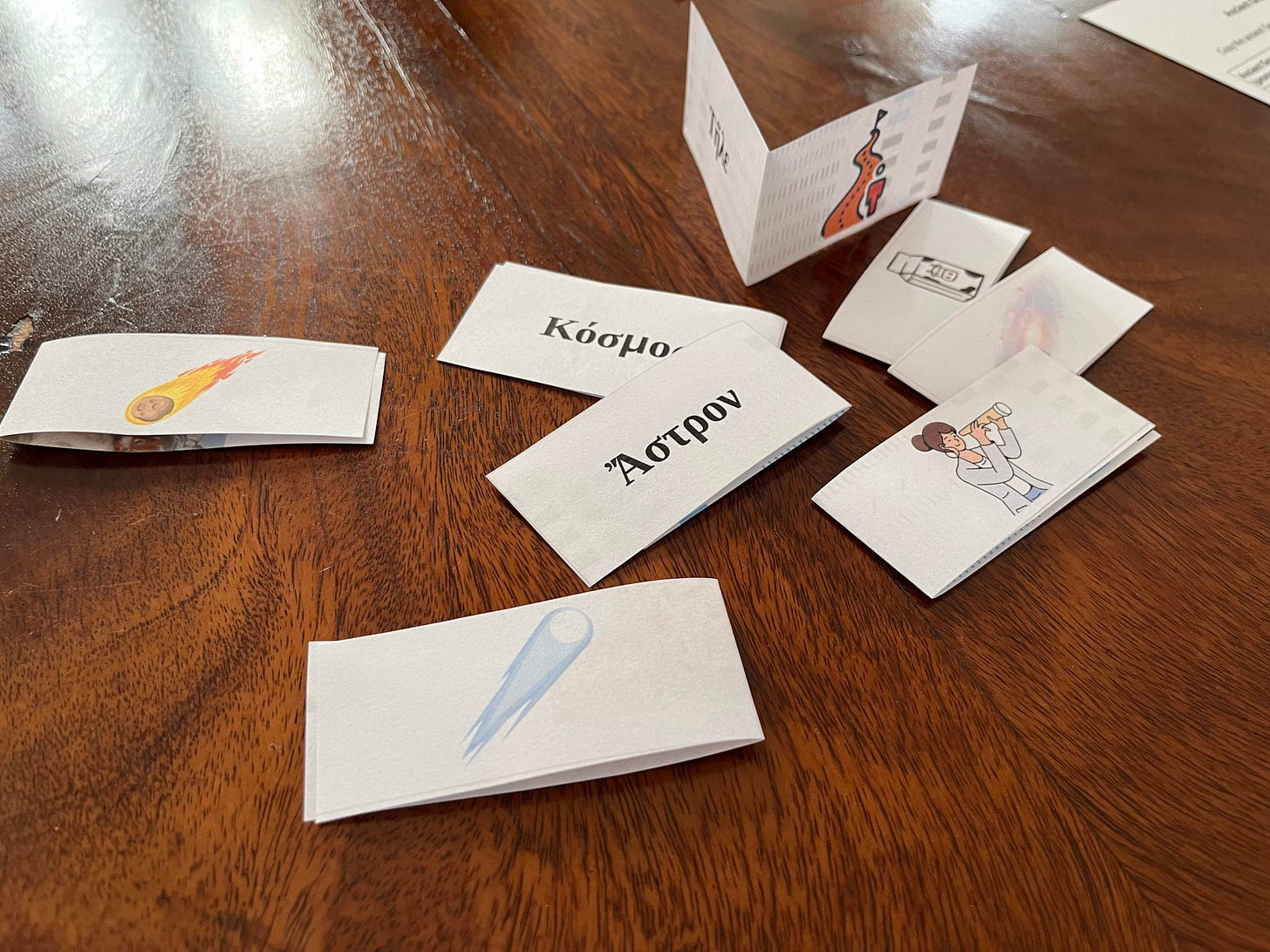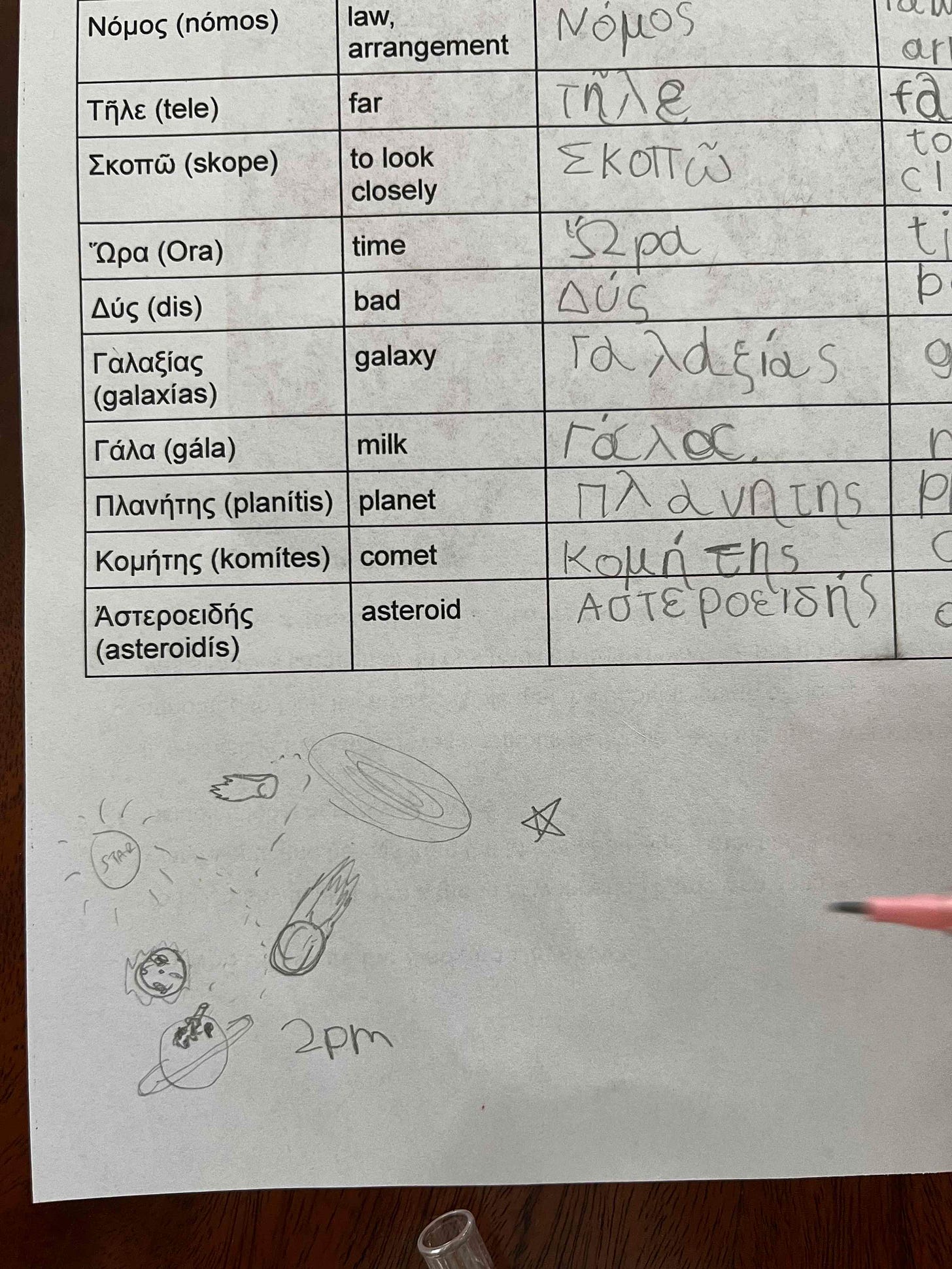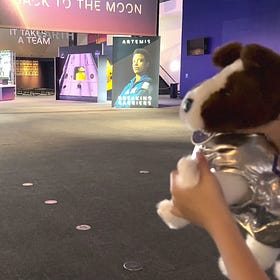Dear Classical KIDS,
This week is a perfect time to review the cosmos. Not just because of yesterday’s eclipse, which no doubt reminded everyone of all the fantastic ancient Greek vocabulary we get regarding the heavenly bodies...
... but also because Eugenia is away at the moment! She is busy working at the Delphi Economic Forum, presenting 'Delphi Classics: Classics in Praxis.'
Titled 'Kudos to Logos', she will be part of the conversation on the revival of Classical Greek through certification, along with a fantastic lineup of professors and educators. You can learn more and join her online here:
Now before we review the cosmic words we know, I think it appropriate to add just one more:
Eclipse!
The word comes from the ancient Greek noun ἔκλειψις (ékleipsis), which means "the abandonment", "the downfall", or "the darkening of a heavenly body."
You can imagine before they knew why the sky went dark, they were a little afraid... Fortunately they had wise philosophers and astronomers who could understand what was happening.
You can regale the kiddos with some of these (though perhaps skip the beheadings) HERE.
Of course, eclipse isn’t the only astronomical word we get from the ancient Greeks... we get so many more! Here are a few of them to help you remember... Check out our worksheets, flashcards and activities below.
Let’s begin!
Copy it Out!
Copy out the ancient Greek word as well as its english definition. You don’t need to copy out the pronunciation, but make sure to say the word as you write it out:
Extra points for making your own illustrations of the words... you can see Frida making her own:
Cosmos Flashcards
Lots of activities with today’s flashcards! First print them out here:
To make flashcards, don’t cut along the middle line, instead fold them in half so you can first practice the words:

After you have practiced them a few times, cut them in half so you can mix and match the words and pictures. We timed it to make it an extra game - and extra fun! Frida went first and then she turned the flashcards over to make it even harder for me...
After a few rounds, we then made it even more difficult. I cut all the flashcards in half at a diagonal and then mixed them up. It became a puzzle-flashcard-activity. Frida wanted to make sure we got our ‘own’. So that can easily be an extra challenge - kids have to find their specific picture first, then match it up, then match it up with the word.
We added another level by having Owly and Snowy try themselves:
What did you think? How did you go with the words? Which were your favorites? And did you have to spend a little time (like we did) going over the differences between asteroids and comets? And yes! I had to google it first…
If you enjoyed practicing some of the ancient Greek words related to the heavens and want to learn more about the planets and stars, make sure to check out the Classical KIDS Space Challenge here:
Ancient Space Challenge!
Dear Classical Wisdom Kids, Time to bring the past to the future! One of the coolest things about learning about the ancient world is seeing references to it everywhere... even in space! We talked last week about WHY the planets are named after the ancient gods and goddesses... So now it’s time to practice the names of the planets as well as their order. We have a LOT of fun worksheets as well as group and individual games below (Planet Dress Up, anyone?).
Hope you enjoyed today’s issue!
All the best,
Anya Leonard
Founder and Director
Classical Wisdom and Classical Wisdom Kids
P.S. A quick note to say we’re ever grateful to our Classical KIDS Club members for your generous support. As mentioned above, Classical Wisdom is an entirely independent, reader-supported publication.
So if you’re enjoying our work, and would like to help support the project, please consider joining our growing community of classics lovers who care about bringing ancient wisdom to future minds here:







